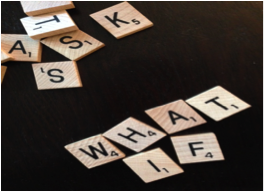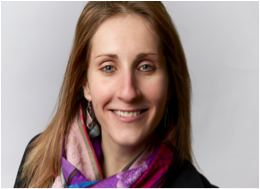If I Woke Up and Didn’t Have an Eating Disorder… Years ago, I was asked to contemplate the following miracle question (concept from solution focused therapy):
 “What if a miracle happened overnight and you woke up no longer having an eating disorder. What would be different? How would you know? What would you do first? Who would be the first person to notice?
“What if a miracle happened overnight and you woke up no longer having an eating disorder. What would be different? How would you know? What would you do first? Who would be the first person to notice?
” My answer was simple in nature, yet, at the time, felt impossible to achieve. I though I had dug a hole too deep this time… I had no idea how to ever get back to such a normalcy with my relationship with food. I, however, didn’t feel like what I was asking for was too much though… Perhaps, it was this piece that made me have hope that recovery could be possible.
Years later, as a clinician, I often ask my clients the same question. Their answers are usually very similar to the one I gave all those years ago… to not have to think about food all the time… to be able to go to the kitchen and make breakfast without having anxiety about it or letting whatever I chose determine the rest of my day… to be able to eat with my family/friends without having to have special conditions or preparations put in place… to be able to eat until I was full and then stop… to give myself permission to have seconds… not needing to punish myself afterwards. Sounds pretty reasonable, doesn’t it? There were no requests to be able to grow wings and fly to the moon or wanting to be able to solve P versus NP (one of the six unsolvable Millennium Prize Problems). The answer usually entails taking back the control food has had in their (our) lives.
It is possible you know… Maybe it doesn’t come in the form of simply waking up one morning and living life differently, but the end result can still occur. How? Well… there is no one correct way or an exact equation in getting there. That’s not a bad thing, as it allows for treatment to be tailored to your needs. Connecting with a therapist who has an understanding in eating disorders and disordered eating is a good start though! Likely, food has become a coping mechanism in some form and purpose. Looking at the underlying reasons, and gaining healthy coping skills is definitely important. In the mean time, here are some helpful points to consider…
1. Is that going to help you in the long run? Sure eating, or not eating, whatever is in front of you might make you feel in control, comforted, distracted, etc in the short term, but how is it going to help you in the long term? Does it teach you how to cope in a healthy manner, or will it continue feeding your unhealthy relationship with food.
 2. Are you really pissed off at those peas or is it about something else? Sometimes we eat, or don’t eat, to avoid feeling our emotions. The peas don’t have anything to do with it… Try to take a moment and recognize what and why you are feeling the way you do and deal with it accordingly. Feeling sad? Comfort yourself with a bath, a hug, a blanket, draw, read, etc. Angry? Assert yourself, set up boundaries, take healthy appropriate action, etc…
2. Are you really pissed off at those peas or is it about something else? Sometimes we eat, or don’t eat, to avoid feeling our emotions. The peas don’t have anything to do with it… Try to take a moment and recognize what and why you are feeling the way you do and deal with it accordingly. Feeling sad? Comfort yourself with a bath, a hug, a blanket, draw, read, etc. Angry? Assert yourself, set up boundaries, take healthy appropriate action, etc…
3. Separate exercise from food! Wait at least an hour after eating to go for a walk, run, bike ride, etc. Don’t exercise if your intention is to burn calories. Give yourself time to digest and work through the emotions and thought process that may come up after having eaten. Exercise has a time and place, however, it’s important to build other skills/coping mechanisms to work through anxiety after meal times. Do a paint by numbers, read, draw, answer e–‐mails, do the dishes, journal, etc.
4. Dieticians Are Great Resources! See a registered dietician (preferably one with experience with eating disorders/distorted eating and practices from a Health at Every Size framework) to learn about portions sizes, nutitional value and meal plans. You might have to relearn what is healthy and normalized, especially if you have been sick or dieting for many years. Maybe you were never taught in the first place. Creating meal plans can help with preparation and making sure you are getting enough of what you need nutritionally. Following a meal plan leaves less time for scrambling, which often leads to high–‐risk situations.
 Karen McGratten,M. Div.
Karen McGratten,M. Div.
Specializing in the Treatment of Eating Disorders
Guelph, ON www.kmcgratten.com


